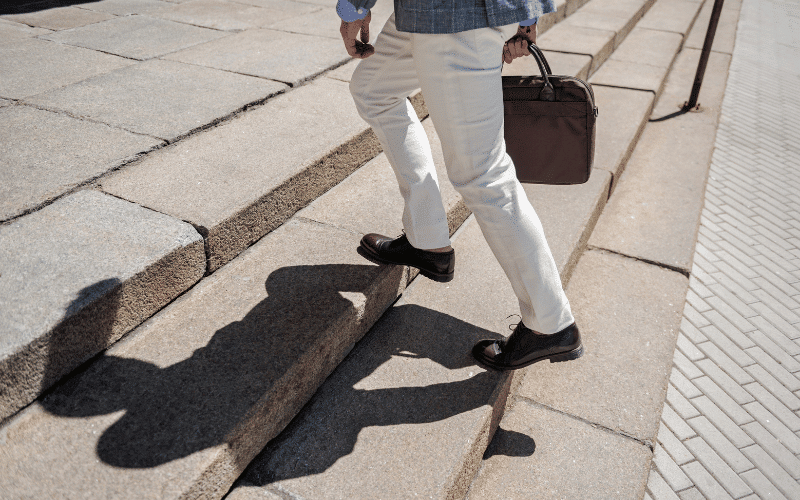Symptom 14: Difficulty Walking Upstairs – A Mountain to Climb

Spinocerebellar ataxia often makes simple tasks, such as walking upstairs, a difficult endeavor. The degeneration of the cerebellum affects the coordination of muscle movements, especially those required for complex activities like climbing stairs.
In the early stages of SCA, individuals might find it slightly more challenging to ascend or descend stairs. There might be a need for additional support, like holding onto the railing, or the process might take longer than usual. This increased difficulty might be dismissed as fatigue or a sign of aging.
As the disease progresses, this symptom can become more pronounced. Stair climbing might become extremely slow, or individuals might avoid stairs altogether. The risk of falls also increases, which could lead to serious injuries.
This difficulty not only poses physical challenges but also influences emotional well-being. The loss of independence and the fear of falls can lead to anxiety, reduced self-esteem, and social isolation. Various interventions can help manage this symptom, including physical therapy, adaptive equipment, and home modifications. (14)